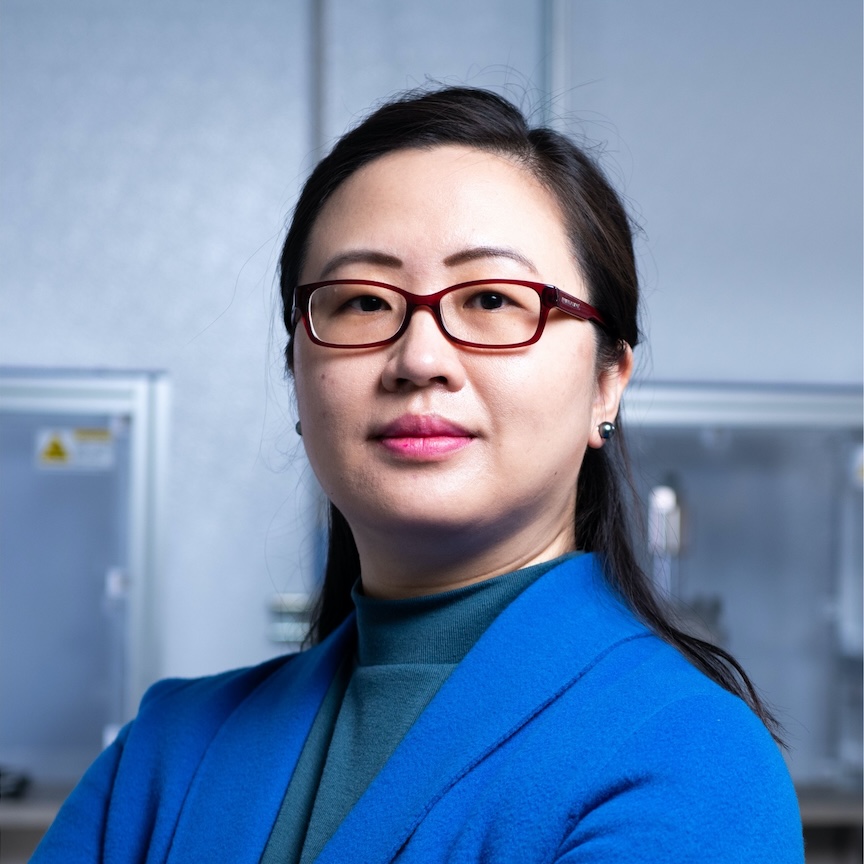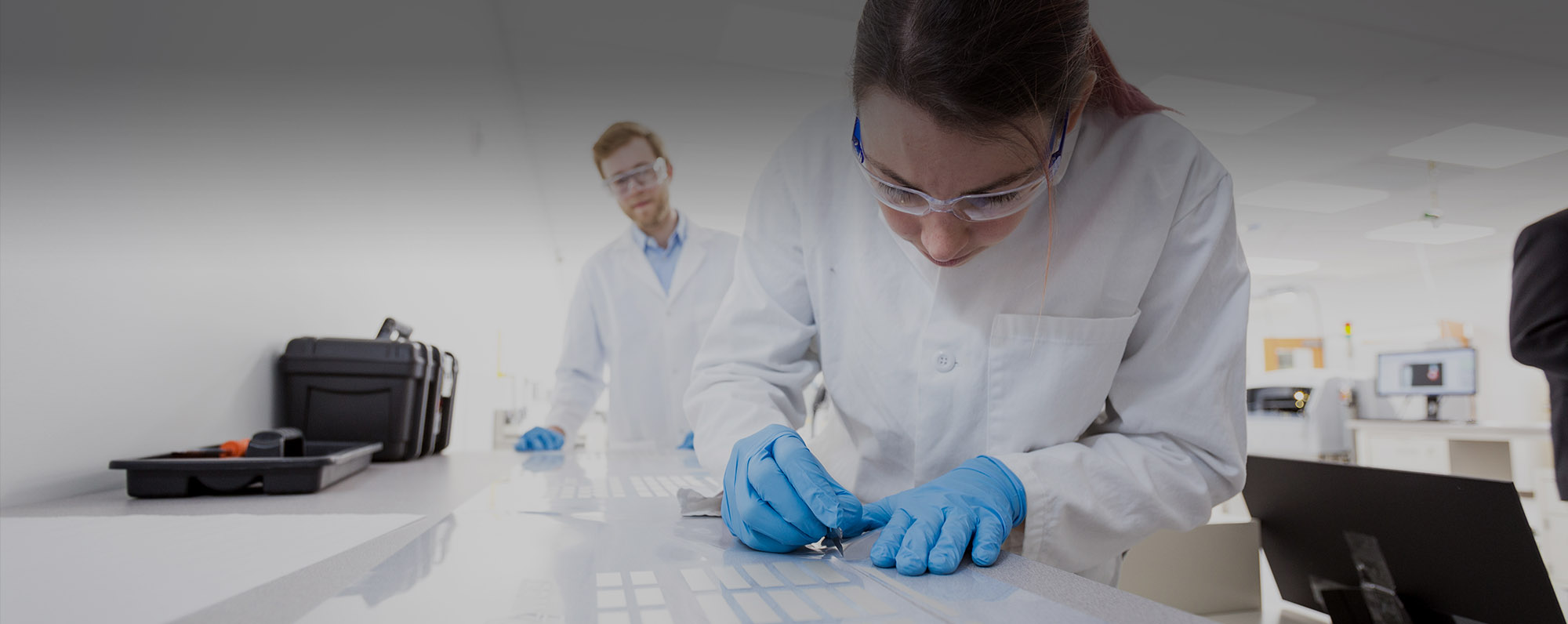
A leader in clean energy research, Jie Xiao plans to help accelerate U.S. battery manufacturing.
November 18, 2024 | UW Mechanical Engineering
This fall, Jie Xiao began her role as Boeing Martin Professor of Mechanical Engineering (ME) at the University of Washington (UW) with a joint appointment as a Battelle Fellow at the Pacific Northwest National Laboratory (PNNL).
Xiao researches the fundamental study and practical applications of energy-related materials and systems, including batteries for electrical vehicles (EVs), sensors and grid energy storage. She has worked on battery research for the past 20 years.
“I’m grateful to join the UW and enhance collaboration between the UW and PNNL,” she says. “My plan is to identify new opportunities for my colleagues at both UW and PNNL to work together and address the pressing challenges in electrochemical energy storage.”
At the UW, Xiao’s goal is to apply scientific and engineering solutions to accelerate the translation of technologies from lab to market and broaden the application of electrochemical approaches to support raw materials mining and battery supply chains. Equally important, she aims to create a pipeline of engineers with hands-on skills who can go on to rewarding careers and support the growing domestic battery manufacturing industry.
Helping to expand battery manufacturing in the United States, which she discusses in this Q&A article, is a priority for Xiao. Batteries include many components, including materials that are inorganic, organic, liquid, solid and their interfaces. They are assembled in the same cell with restricted volume to release and accept electrons bidirectionally and power our devices efficiently. Xiao plans to explore cost-efficient methods for manufacturing battery materials and components.
“I’m excited to explore and address those challenges with UW students and faculty in collaboration with national labs and industry partners,” Xiao says. “If successful, innovation manufacturing in the U.S. would create jobs and speed up the translation of technologies from lab to market.”
A career in clean energy
As an undergraduate student, Xiao’s interest in battery research was piqued when she read the work of Sir M. Stanley Whittingham, professor at Binghamton University, who was using hydrothermal methods to make battery materials. Whittingham, who later went on to win the Nobel Prize in Chemistry in 2019, became Xiao’s mentor as she pursued a Ph.D. degree in his research group and decided to pursue a career in clean energy 20 years ago.
Today, Xiao holds 17 patents and copyrights, and her research has led to innovations in enabling next-generation high energy lithium metal batteries and scaling up new materials that make up the cathode, which is the positive electrode in a battery. She serves as the deputy director for the Innovation Center for Battery500 Consortium and the director for the Cathode-Electrolyte Interphase Consortium, both of which are funded by the Vehicle Technology Office (VTO) of the U.S. Department of Energy (DOE).
Xiao has won prestigious awards including DOE’s E.O. Lawrence Award, the Technology Research and Innovation Award from the Clean Energy Education and Empowerment (C3E) Initiative and The Electrochemical Society (ECS) Battery Technology Award. Since 2017, Xiao has been named a top 1% Clarivate Analytics Highly Cited Researcher every year.
To ensure that battery materials are being tested in labs under conditions that are relevant to industry applications, Xiao has developed and published protocols that have changed how battery research is conducted and reported. Her recommendations have been broadly adopted by scientists and engineers working to advance energy storage research.
“Our suggested protocol helps prove that battery performance can be realized and repeated at a higher success rate with the results relevant to practical batteries,” Xiao says. “Many researchers have started using coin cell protocols in their research. I feel very proud of that.”
Improving battery performance and manufacturing
``There is an exciting opportunity in front of us to integrate the UW and PNNL’s unique capabilities and expertise to make a big impact from fundamental research to practical device implementations as well as workforce development for a clean energy future.`` — Prof. Jie Xiao
UW and PNNL have had ongoing battery research projects led by Xiao. Over the past few years, Xiao has collaborated with ME Professor Corie L. Cobb, whose lab’s unique additive manufacturing and materials processing capabilities help provide new insights about the interface between the electrode and electrolyte in a battery.
Xiao also collaborates with ME Assistant Professor Aniruddh Vashisth. The team successfully used radio-frequency heating to quickly decompose sulfates into oxides, making them immediately ready to synthesize and scale up new batteries. A joint patent application was recently filed.
Currently, Xiao is leading a project to develop a technology for manufacturing single crystal nickel-rich cathode materials, which could improve the performance and safety of lithium-ion batteries used in EVs. Other UW collaborators include ME Professor John Kramlich; Jun Liu, Washington Research Foundation Innovation Chair in Clean Energy and professor in chemical engineering and materials science and engineering (MSE); and Eleftheria Roumeli, assistant professor in MSE. The project received approximately $4.46 million from the DOE’s Advanced Materials and Manufacturing Technologies Office (AMMTO).
“This project is not only to do fundamental research, but also to explore the manufacturing science behind scaling up the synthesis of battery materials,” Xiao says.
Xiao is also developing a roadmap for a future DOE testbed facility, funded by AMMTO. The goal is to identify an executable plan to better utilize the facilities and teaching capabilities at the UW and PNNL to support industry, accelerate commercialization and create a strong future workforce for clean energy technologies. Xiao is working with Jihui Yang, vice dean of the College of Engineering and professor in MSE, and MSE Associate Teaching Professor Luna Huang to organize key industry workshops and develop manufacturing-related courses.




